News
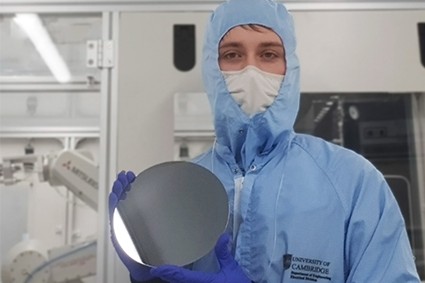
The Hofmann Group is among the recipients of funding delivered under the new New Horizons programme designed to support adventurous, high-risk research. This funding will allow the group to explore the science behind novel 2D oxide materials.
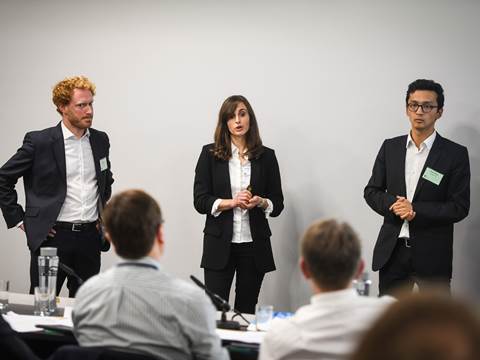
Chemistry Means Business: HexagonFab winner of Materials and Enabling Technologies Prize in Royal Society of Chemistry Emerging Technologies Competition.

Nanoscience through the eyes of artists: ‘Flawless’ crystal growth in Hofmann group (Nanovignettes).
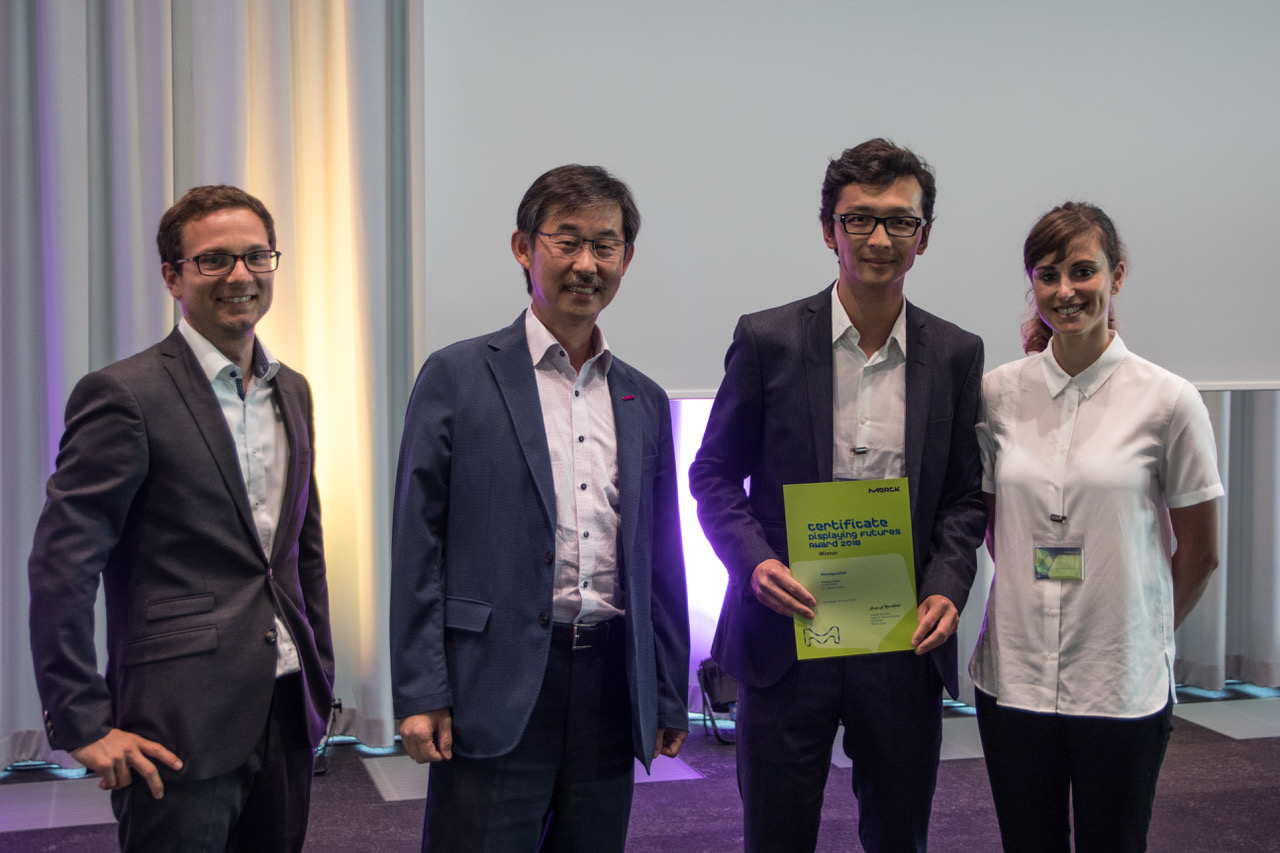 Ruizhi Wang and our start-up, Hexagonfab, won the Displaying Futures Award from Merck, the global special materials and life science company. The award is aimed at early start-ups and comes with a price of $50K and a year long mentoring from Merck.
Ruizhi Wang and our start-up, Hexagonfab, won the Displaying Futures Award from Merck, the global special materials and life science company. The award is aimed at early start-ups and comes with a price of $50K and a year long mentoring from Merck.

Stephan Hofmann elected Fellow of the Institute of Physics.
 Ultra-thin graphene-based encapsulation for OLEDs
Ultra-thin graphene-based encapsulation for OLEDs
Gas and water permeation barrier films play a vital part in applications ranging from food and pharmaceutical packaging to electronic devices. Two-dimensional (2D) materials, like graphene, are highly promising as ultra-high barrier materials, and their atomic thinness, mechanical stability, optical transparency and thermal properties offers many new possibilities and device form factors.
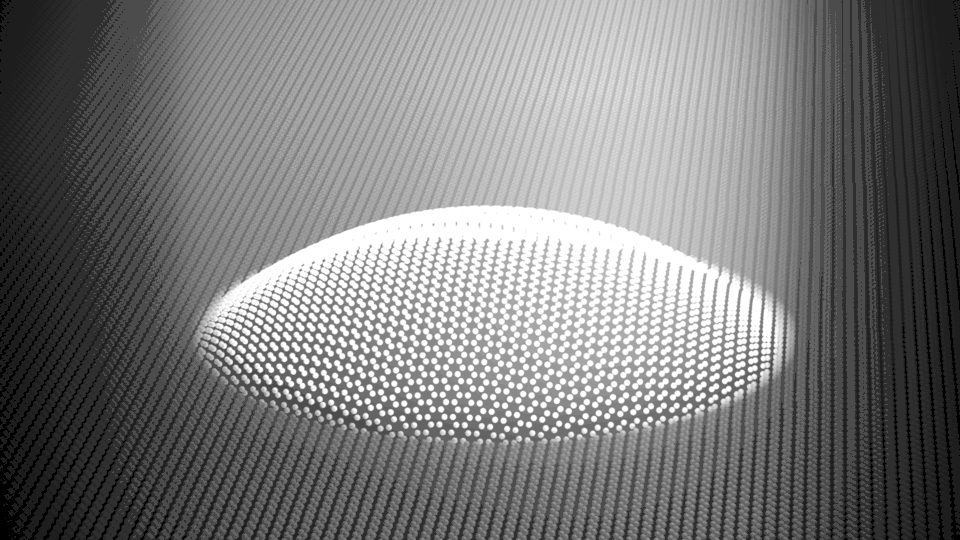
Tiny mechanical sensors using white graphene;Phys.org
Researchers from TU Delft in The Netherlands, in collaboration with a team at the University of Cambridge (U.K.), have found a way to create and clean tiny mechanical sensors in a scalable manner. They created these sensors by suspending a two-dimensional sheet of hexagonal boron nitride (h-BN), or ‘white graphene’ over small holes in a silicon substrate.
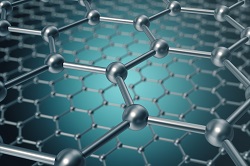
Crystals show the future for nanomaterials – News feature on EU funded InsituNANO project
The EU-funded INSITUNANO project is helping to unlock the potential of new nanomaterials by showing us how they grow, how we could steer that growth and how we could use them in new ways in devices.

Stephan Hofmann promoted to a Chair (Professor of Nanotechnology) at the Department of Engineering, University of Cambridge
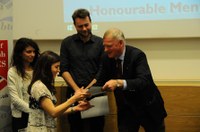
Sabina awarded 2nd prize in the ABTA 2016 Doctoral Researcher Awards
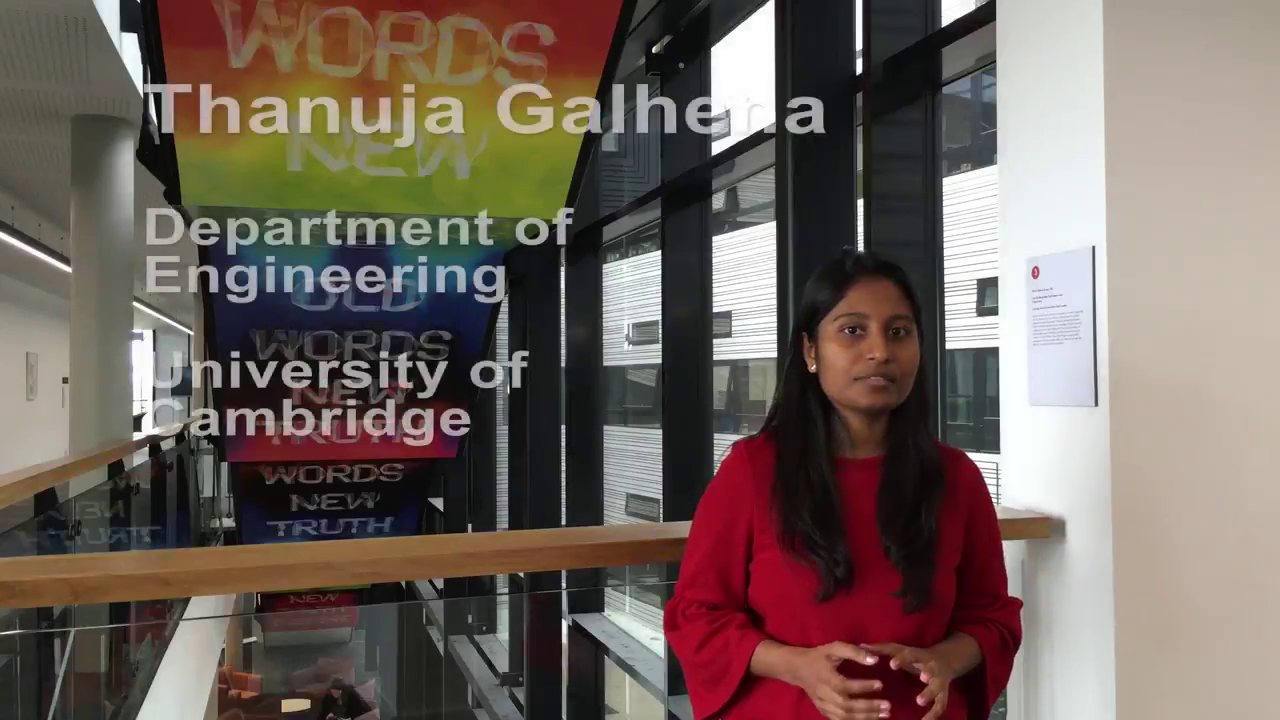
Thanuja explains her work on supercapacitors in 30s for submission to a house of commons select committee on future energy technologies Twitter.
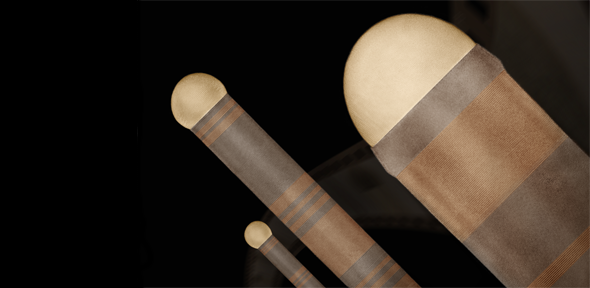
Research highlights: Farming at nanoscale dimensions.
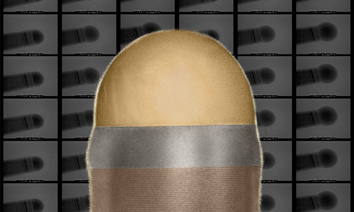
How crystals get an edge: News&Views Article on our latest Nature paper [pdf].
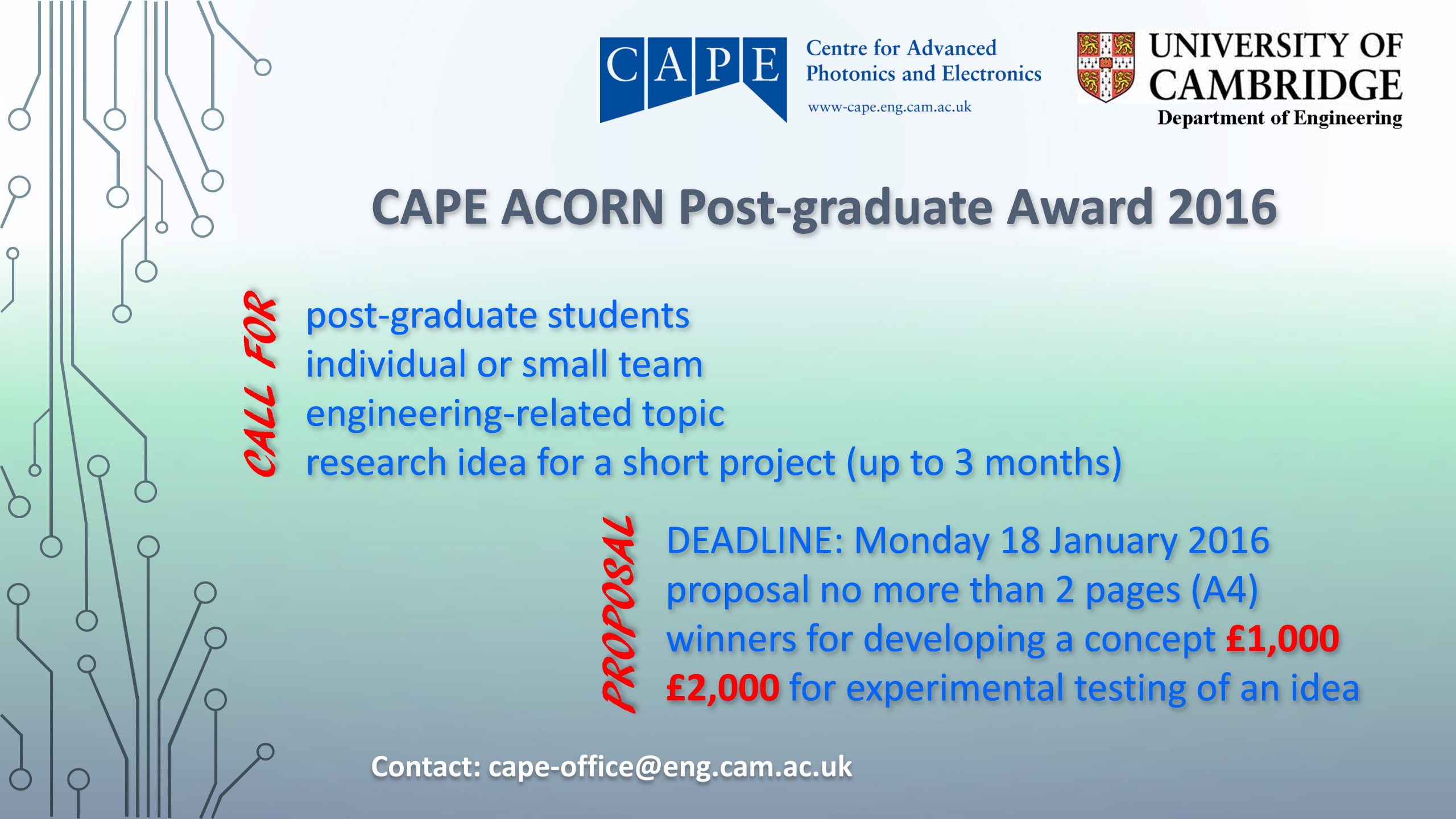
Kenichi awarded CAPE Acorn Post-graduate Research Award 2016.
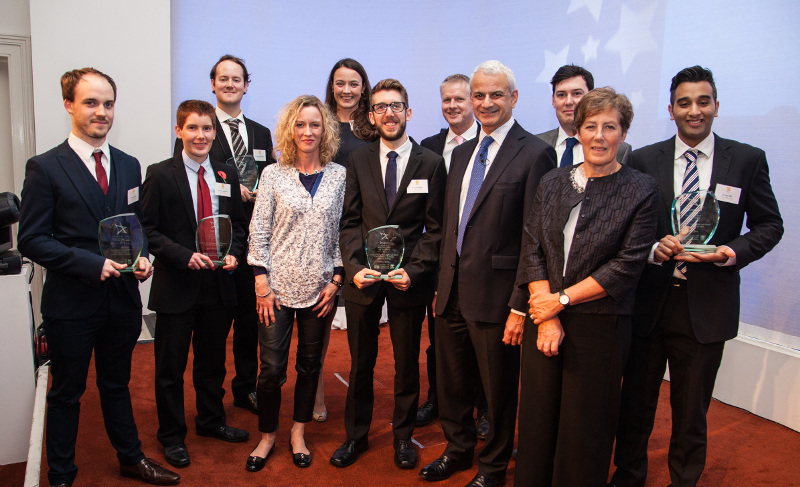
Jack awarded Scopus Young Researcher UK Award 2015 [link]. [video]

UK collaboration seeks to develop new ultra-barrier materials based on Graphene interlayers. News on electroiq.com and uk-cpi.com.
 New technique to synthesise nanostructured nanowires – News Feature on our latest Crystal Growth Data, and at IEEE Spectrum and Nanotechweb.
New technique to synthesise nanostructured nanowires – News Feature on our latest Crystal Growth Data, and at IEEE Spectrum and Nanotechweb.
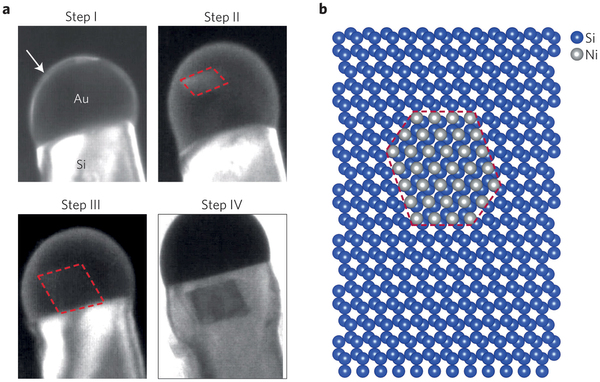
Vapour–liquid–solid growth: Nanowire–quantum dot epitaxy. Nature Materials (2015).
![]()
Drawing the 2D roadmap: Our perspective of Graphene Manufacture and Technology on J. Phys. Chem. Lett. front cover.
![]()
Our research on front cover of APL.
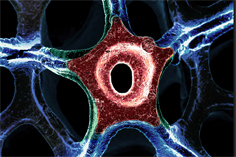 Indrat wins First Prize in the ZEISS photography competition 2014 with his image of graphene foam [link]. This is also featured on the following websites: The Telegraph, The New Scientist, The Daily Mail and The Conversation.
Indrat wins First Prize in the ZEISS photography competition 2014 with his image of graphene foam [link]. This is also featured on the following websites: The Telegraph, The New Scientist, The Daily Mail and The Conversation.
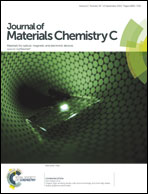
Our research on front cover of J Mat Chem C.
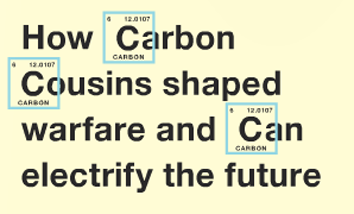
Hofmann group research overview in Research Horizons.

Piran Kidambi awarded Lindemann Trust Fellowship and 1st prize in the Engineering Sciences Division at the ABTA 2014 Doctoral Research Awards.
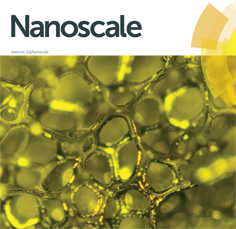
Our research on front cover of Nanoscale.
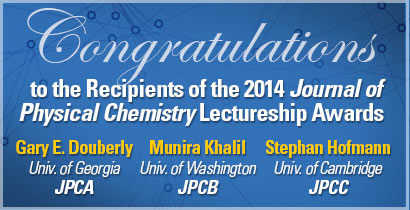
Stephan Hofmann awarded the 2014 ACS Journal of Physical Chemistry C Lectureship.
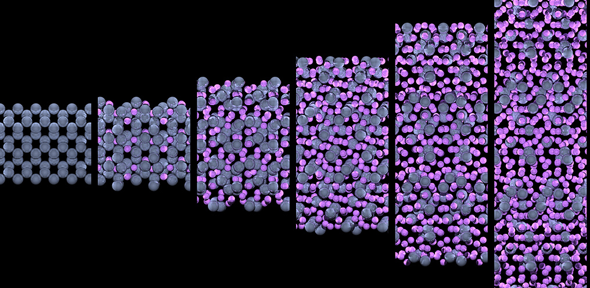
Lifting the lid on silicon batteries – News feature on our latest Si nanowire based battery model system.

University of Cambridge awarded funding for Centre for Doctoral Training in Sustainable and Functional Nano with Dr S. Hofmann as co-director. [BBC] and [EPSRC].

The beauty of engineering: Sabina Caneva’s and Andrea Cabrero’s entries to University of Cambridge Department of Engineering’s annual photographic competition covered by national press [Daily Mail].
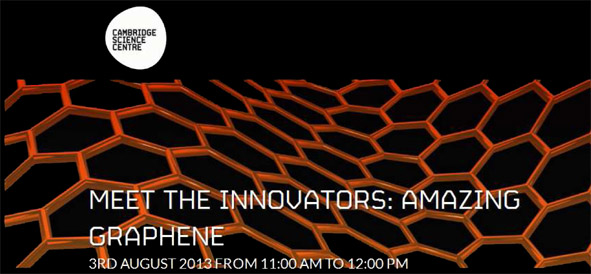
Hofmann group gives introduction to graphene research for kids at Cambridge Science Centre.
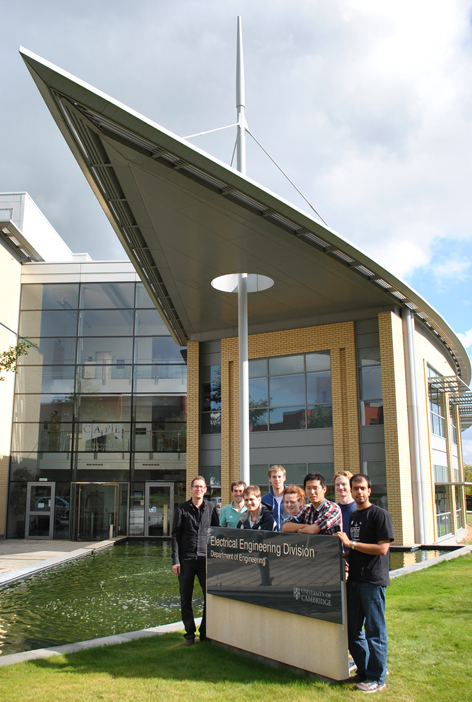
GRAPHTED – Graphene CVD workshop – 11 Jul 2013 in Cambridge.
The workshop focussed on CVD based graphene production and process technology, bringing together UK based graphene CVD researchers and international industrial partners. The workshop was organised as part of the EPSRC funded GRAPHTED project, led by Stephan Hofmann, aiming to address key questions related to the industrial development of graphene and related 2D materials.
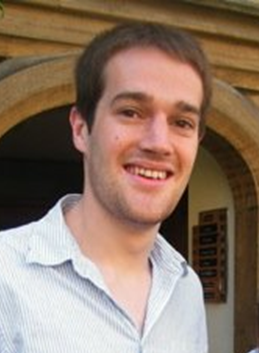
Rob Weatherup awarded Research Fellowship at St John’s College, Cambridge.
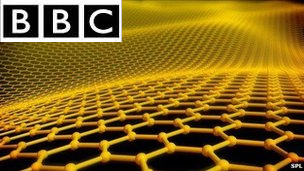 Cambridge University awarded over £12million for research on graphene incl. Stephan Hofmann led project on CVD enabled graphene technology and devices. As featured in: EPSRC News, Cambridge News, The Guardian, The Telegraph, BBC News, The Daily Mail, The Financial Times, BBC News, Sky News, Times Higher Education, The Register, Yahoo News.
Cambridge University awarded over £12million for research on graphene incl. Stephan Hofmann led project on CVD enabled graphene technology and devices. As featured in: EPSRC News, Cambridge News, The Guardian, The Telegraph, BBC News, The Daily Mail, The Financial Times, BBC News, Sky News, Times Higher Education, The Register, Yahoo News.
 Graphene: Taking the wonder-stuff from dream to reality. Dr Stephan Hofmann receives funding for his project on the manufacturability of graphene and other layered 2D materials. As covered by: Research News, ITV News, BBC News, Cabume, Engineering Department, Sky News, ITPro, Newelectronics, Cambridge News, Bdaily, BusinessWeekly.
Graphene: Taking the wonder-stuff from dream to reality. Dr Stephan Hofmann receives funding for his project on the manufacturability of graphene and other layered 2D materials. As covered by: Research News, ITV News, BBC News, Cabume, Engineering Department, Sky News, ITPro, Newelectronics, Cambridge News, Bdaily, BusinessWeekly.
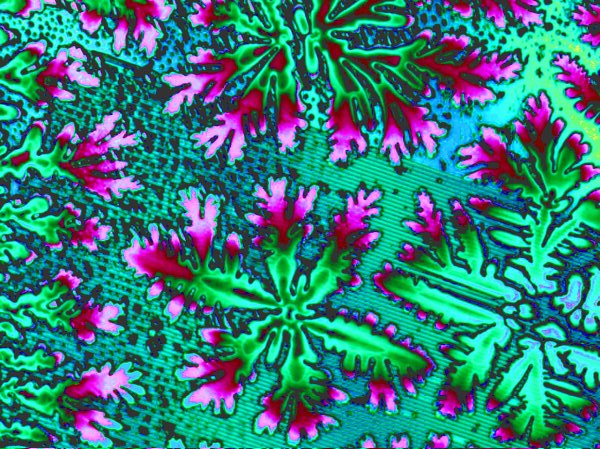 Pola Goldberg Oppenheimer’s wins 3rd prize in this years Photography Competition at the Department of Engineering for her image (Nanoscale Fractal Branching Patterns) of adhesive structures that mimic the ability of the gecko’s feet to stick to surfaces repeatedly without losing their stickiness.
Pola Goldberg Oppenheimer’s wins 3rd prize in this years Photography Competition at the Department of Engineering for her image (Nanoscale Fractal Branching Patterns) of adhesive structures that mimic the ability of the gecko’s feet to stick to surfaces repeatedly without losing their stickiness.
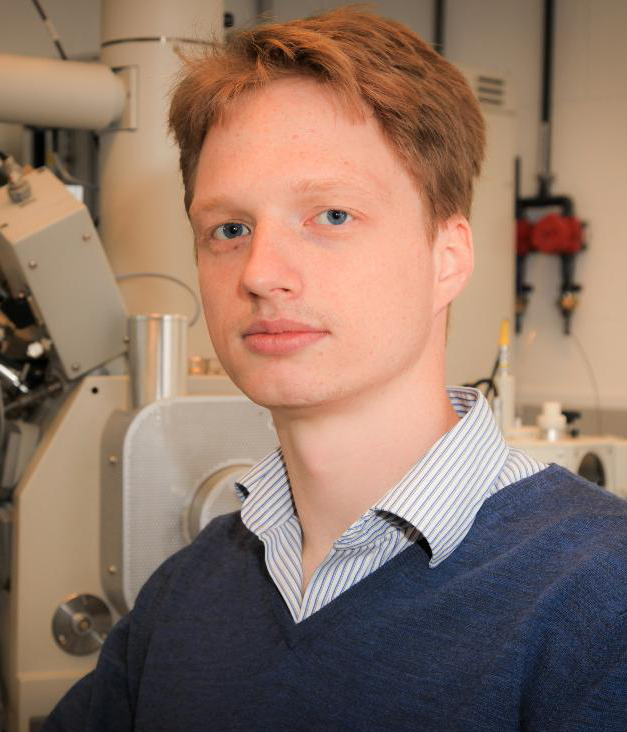
Bernhard Bayer awarded College Research Fellowship at Hughes Hall, Cambridge.
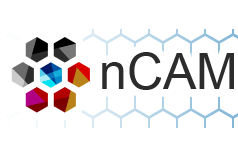
nCam2012 (co-organised by S. Hofmann) on BBC Look East televison.

Ken Ogata receives prestigious JSPS Postdoctoral Fellowship to work in Hofmann group.
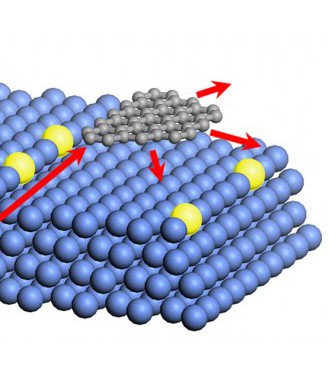 Golden touch makes low-temperature graphene production a reality.
Golden touch makes low-temperature graphene production a reality.
A method which more than halves the temperature at which high-quality graphene can be produced has been pioneered by researchers. Rob Weatherup’s paper on the growth of graphene on alloy catalysts featured in electronicsweekly.com and newelectronics.co.uk.
 The Depatrment’s Electrical Engineering Division has won the Elektra (European Electronics Industry Awards) for best Electrical/Electronic Engineering Department of the Year (2011). The division were chosen as the most innovative and successful electronic and electrical engineering department within a university or college.
The Depatrment’s Electrical Engineering Division has won the Elektra (European Electronics Industry Awards) for best Electrical/Electronic Engineering Department of the Year (2011). The division were chosen as the most innovative and successful electronic and electrical engineering department within a university or college.
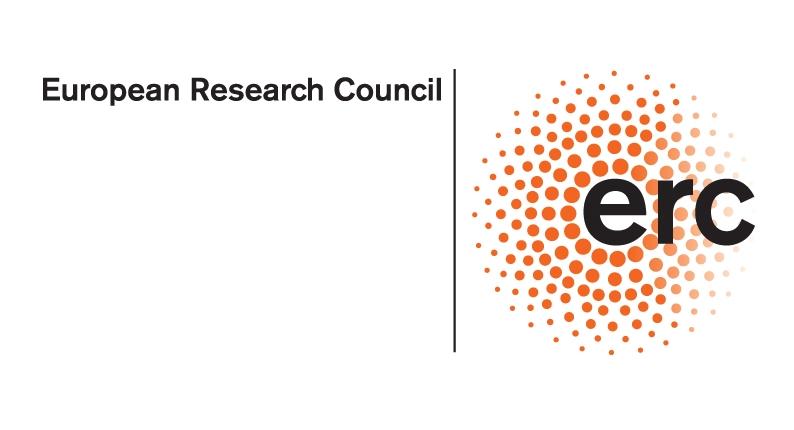
Dr Stephan Hofmann receives prestigious European Research Council grant.
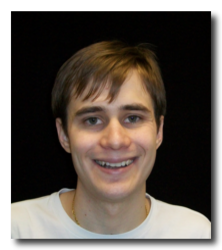
Andrew Gamalski receives 1st Poster Prize at SemiconNano 2011 conference

Ken Ogata’s paper on the Silicidation kinetics of quantum wires featured on nanotechweb.org.
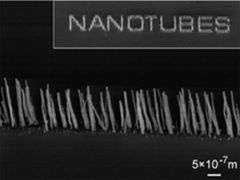 Watch amazing footage of how nanotubes form. A team of scientists led by Dr Stephan Hofmann from the Engineering Department at the University of Cambridge have successfully produced live video footage that shows how carbon nanotubes, more than 10,000 times smaller in diameter than a human hair, form.
Watch amazing footage of how nanotubes form. A team of scientists led by Dr Stephan Hofmann from the Engineering Department at the University of Cambridge have successfully produced live video footage that shows how carbon nanotubes, more than 10,000 times smaller in diameter than a human hair, form.